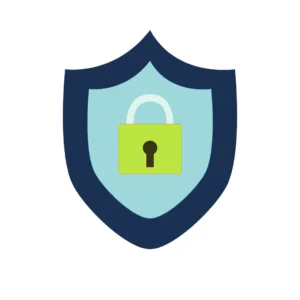Phishing remains one of the most significant threats to organisational cyber security. Scammers are constantly evolving their techniques, like a game of cat and mouse, creating sophisticated phishing emails that can be challenging even for seasoned professional. To counter this, organisations are turning to phishing simulations or tests as an essential tool to not only train employees but also uplift their overall security culture.
What are phishing simulations?
Phishing simulations are controlled training exercises where employees receive ‘fake’ phishing emails designed to mimic real-world scams. These simulations test how effectively individuals can identify phishing attempts without putting the organisation at risk. By mimicking social engineering tactics used by cyber criminals, phishing simulations allow organisations to measure their workforce’s ability to spot scams and then provide targeted training for improvement in the form of a microlesson.

Advancing learner sophistication in spotting scams
Phishing simulations are not about catching employees off guard; they are about encouraging learning through real-life scenarios, using empathy rather than a ‘gotcha’ style of trial and punishment. Here’s how they enhance the ability to identify scams:
- Realistic Training: Simulated phishing test emails reflect the latest trends in phishing attacks, such as QR code phishing – helping employees recognise red flags they may encounter in real situations.
- Incremental Difficulty: Phishing simulations often start with basic examples and increase in complexity over time, gradually building employees’ ability to spot the subtle cues of malicious intent.
- Immediate Feedback: Participants receive instant feedback on their email reporting, which reinforces learning and provides insights for avoiding future mistakes.
- Customised Scenarios: Tailored simulations address specific risks within an organisation, such as targeted spear-phishing campaigns.
Building a strong security culture
Beyond individual learning, phishing simulations have a broader impact on an organisation’s security culture.
- Promoting Awareness: Regular phishing simulations keep cyber security top of mind for employees, fostering a proactive rather than reactive approach to threats.
- Encouraging Accountability: Employees learn the importance of vigilance in protecting company assets and are empowered to report suspicious activities without fear of judgment.
- Breaking Down Barriers: Simulations create a shared learning experience, reinforcing that cyber security is everyone’s responsibility—not just the IT department.
- Celebrating Success: Recognising teams or individuals who excel in identifying phishing attempts encourages positive reinforcement and motivates others to improve.

Uplifting your organisation’s defence posture
Organisations that invest in phishing simulations along with specialised training report tangible improvements in both employee behaviour. By educating teams to recognise phishing attempts, organisations not only reduce their vulnerability to attacks but also foster an environment where cyber security is woven into the fabric of their operations.
Phishing test emails are a key component of these exercises, however it’s important to teach with empathy and respect. Over time, employees become adept at identifying the subtle indicators of phishing, from suspicious email addresses to manipulative language and unusual attachments.
Phishing simulations are more than just a training tool—they are a catalyst for change within an organisation. To find out more about how we can help uplift your organisation’s cyber security awareness culture, book a demo with our team today.

